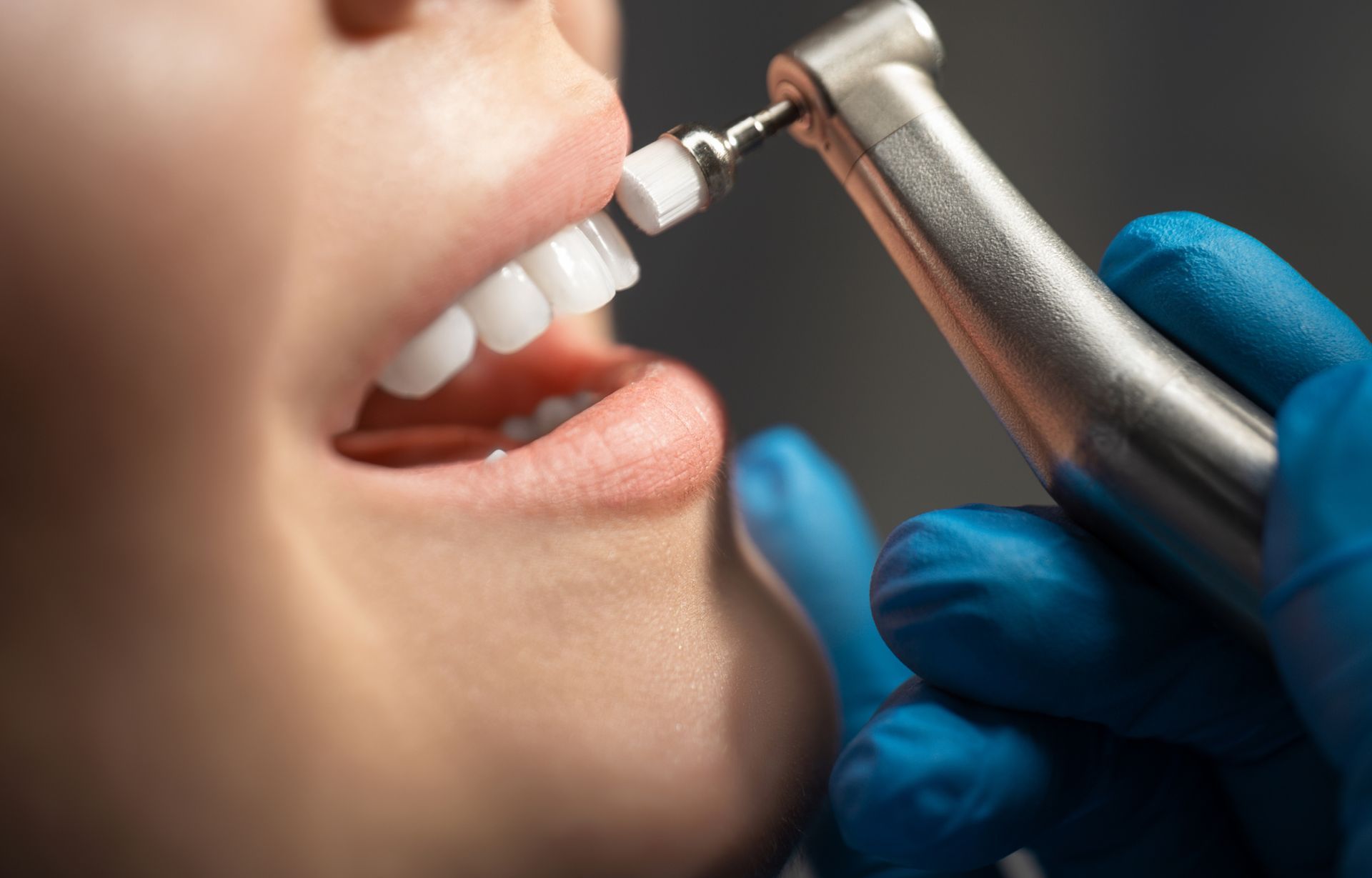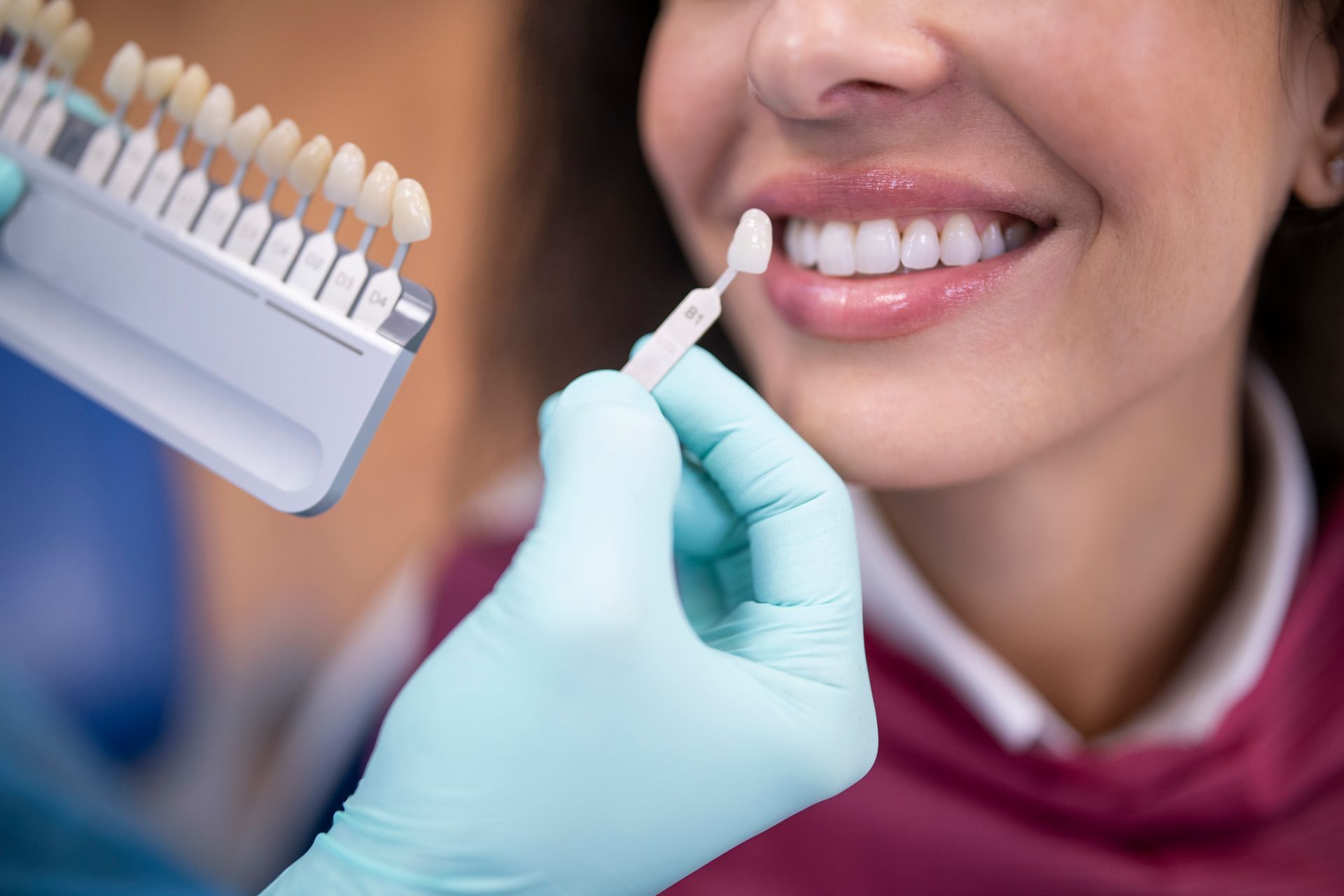Are You at Risk for Gum Disease?

Gum disease is a common oral condition that irritates the soft tissue surrounding your teeth. If left unchecked, the disease can damage the bone supporting your teeth, leading to loose or missing teeth. Discover seven risk factors of gum disease below.
1. Poor Oral Hygiene
Plaque, a sticky biofilm of bacteria that coats teeth, is a top cause of gum disease. Brushing and flossing removes the plaque, but the bacteria forms as soon as you clean your teeth.
If you slack on your oral hygiene, plaque builds up on and around your teeth and causes inflammation. This earliest stage of gum disease, called gingivitis, is characterized by red and swollen gums.
Luckily, you can reverse gingivitis by committing to a regular brushing and flossing schedule. Dental cleaning is also crucial at this stage to reduce the populations of bacteria colonies in your mouth.
If left unchecked, gingivitis progresses to periodontitis, where pockets that easily get infected form between teeth and gums. The gums are more likely to pull back from the teeth at this stage as the bone supporting your teeth degrades. The intervention of a dentist is necessary if you have periodontitis to prevent tooth loss.
2. Tobacco Use
Tobacco use is a significant risk factor for gum disease because it interferes with the usual function of gum tissue cells. Smoking also makes it difficult to treat gum disease. You should cut back on tobacco use if you notice bleeding, swelling, loose teeth, a bad mouth taste, and other gum infection symptoms.
3. Hormonal Changes
Hormonal shifts commonly increase the body's inflammation response to plaque bacteria, which can result in bleeding gums. This condition is particularly prevalent among pregnant women since hormones rise and fall during pregnancy.
The best way to avoid pregnancy gingivitis is to keep up with daily oral hygiene practices. Attend all dental appointments during this time and look for irritated gums, bleeding, and tenderness.
Hormones shifts during puberty and menopause also increase the risk of gum infection, and you must pay special attention to your oral care during these times.
4. Medical Conditions
Systemic diseases affecting your body's inflammatory system can make your gums susceptible to gum infection. These conditions include diabetes, HIV/AIDS, Rheumatoid arthritis, cardiovascular disease, cancer, and Crohn's disease. Share your medical history with your dentist so they can determine the frequency of checkups to keep gum disease at bay.
5. Medications
Saliva helps keep your mouth healthy by washing away bacteria and plaque. However, some medications dry up the mouth, leaving bacteria to spread quickly. Other drugs affect your immune response and make you more vulnerable to oral health issues.
Discuss any prescription medications like oral contraceptives and anti-depressants you take with your dentist, and ask about any oral health changes.
6. Poor Nutrition
A diet with insufficient vital nutrients makes your body's immune system less effective in fighting infections like gum inflammation. If you overeat sugar and carbohydrates, incorporate more foods rich in vitamin C and water to boost your body's immunity.
Obesity can also increase your risk for gum disease, so talk to your dentist about making some lifestyle changes if necessary.
7. Age and Genetics
Gum disease is prevalent among Americans 65 and older, so you should maintain good oral hygiene and go for regular dental appointments as you age. You may also be genetically susceptible to gum infections if your family has a history of gum disease. Because of this, you should talk to your dentist about any occurrences of gum disease in the family line.
If you have one or more gum disease risk factors, we can help. Our comprehensive services at Smiles By Hogan include gum disease treatment, periodontal maintenance, teeth cleaning, and sealants. Call us today for enhanced oral health.










